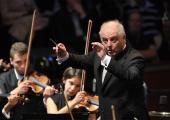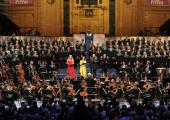Argerich, Staatskapelle Berlin, Barenboim, RFH
A Schubert rondo is the unscheduled highlight, but Barenboim's Strauss is all over the place
It looked like a potential misalliance between performers used to looking at the stars and a programme of earthly, ideally rather broadly humorous delights. In the event, Martha Argerich, who can turn her high, lucid playing to most ends, sought out a sharp-edged wit if not a relaxed warmth in Beethoven’s First Piano Concerto. The real magic came later in the first half. But in the second, Daniel Barenboim seemed to have a very strange concept indeed of Strauss’s Ein Heldenleben (A Hero’s Life), a work which can seem oddly repellent without lashings of exuberant epic parody – there was hardly any in this poker-faced performance – and worse still when pulled around so that the line through it sags and snaps.
So which was it to be with the Beethoven concerto (actually his second) – a look backwards to Mozart, or forward to bigger adventures? No need to choose with these wide-ranging artists. The full range was here, from the Staatskapelle Berlin’s hushed but beautifully sprung opening, Argerich drumming out right hand patterns while she waited for her entry, to heroic trumpets and drums; and from Argerich in playful mood to precipitous, improvisational-seeming wonders at the end of the first-movement exposition. It’s my problem if most Beethoven concerto slow movements induce torpor and switch-off; not this one – even if its clarinet writing comes frustratingly nowhere near what Mozart achieved with the instrument in his late, great piano concertos. Not that I felt any such problem, or any flaw at all, in a concerto partnership, Imogen Cooper's with Iván Fischer and the Budapest Philharmonic Orchestra, which for sheer charm and freshness outstripped this one and will somehow burn more strongly in the memory.
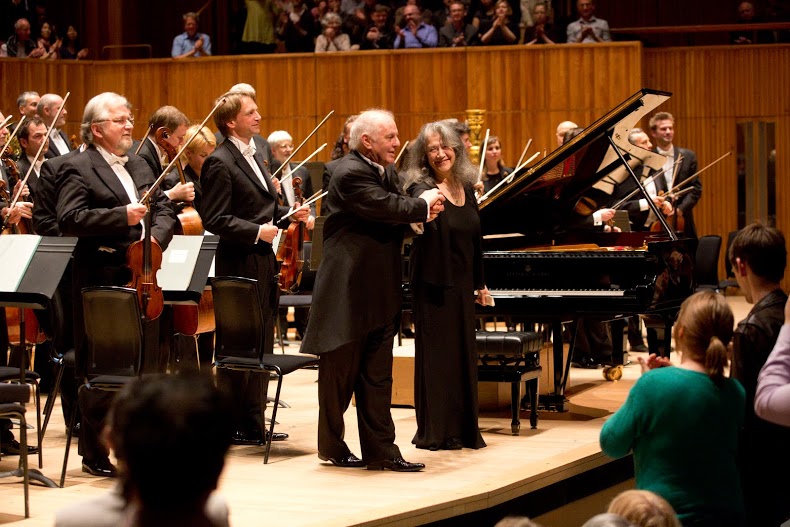
In the light of their curate's-egg recording, a certain nervousness was in order for the Staatskapelle Berlin/Barenboim interpretation of Ein Heldenleben. The strings were full-blooded in well-moulded climaxes but never sensuous – a shortcoming in a love-scene the only interest of which lay in the clarity of the two swooning, glissandoing harps. Leader/concertmaster Wolfram Brandl’s extensive portrait of the "Hero’s Companion" – Frau Pauline Strauss in an appendage to what I’ve always taken to be a tongue-in-cheek self-portrait – turned out to be a far from flawless technical exercise rather than the necessary characterization of infinite variety.
Yet the real problem was the way in which every time Barenboim wanted dynamics to plunge, the tempo and edge did too, making this a chilly Mercedes of a performance which seemed to be constantly running out of juice. Sometimes the quiet was justified, but softness sapped the proud new theme of the hero’s return from battle and what should be the high noon of the “Works of Peace” section, in which Strauss reviews themes from his works up to 1899 and weaves them into one gorgeous tapestry. That started too briskly and then turned to mush when it should have glowed the most. A first-horn rudeness shattered the returning calm of “The Hero’s Retirement from the World”, and brass intonation was often dodgy (though full marks to the first trumpet for crowning the battle). This time I wasn’t in the mood for an encore, and we didn’t get one. Elgar’s Second Symphony, a much deeper work, will need to flow more convincingly tonight.
Overleaf: watch Argerich and Barenboim play the Schubert A major Rondo

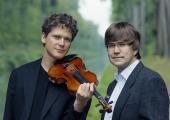
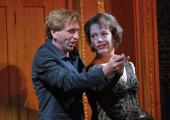
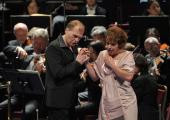
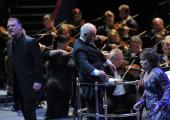
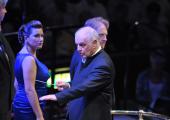
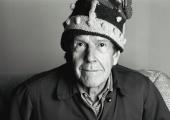
 Beethoven: Symphonies 4 and 7 Academy of St Martin in the Fields/Joshua Bell (Sony)
Beethoven: Symphonies 4 and 7 Academy of St Martin in the Fields/Joshua Bell (Sony)